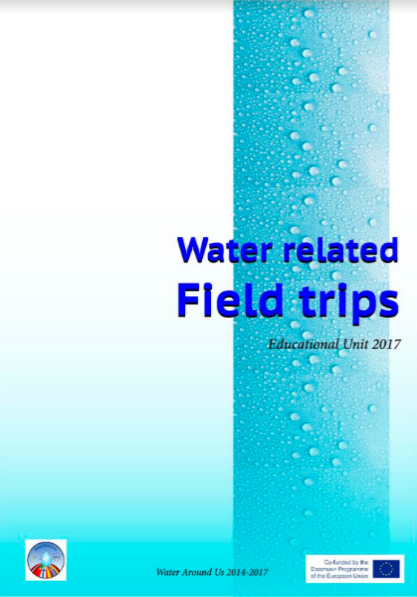20. EDUCATIONAL UNIT nº 3 - Water field trips
Water related field trips:
Lauritsalan Koulu, Finland: Fishing and examining fish at Lake Saimaa
Rūjiena Secondary School, Latvia: Field trip to Vidzeme Seaside, Gulf of Riga
MS Holderhecke Bergrheinfeld, Germany I: Trip to make coloured snow sculptures
IES La Granja, Spain: Trip to Los Toruños Natural Park, province of Cadiz
Grunnskolinn i Borgarnesi, Iceland: Catching and examining eels at Lake Alatjörn
Escola Secundária de Valongo, Portugal: Study visit to the coast of Aveiro
Balthasar-Neumann MS Werneck, Germany II: 3 day bike tour along the River Wern
Field trips are and always have been highlights of every day school life; a shared social experience which provides an opportunity for students to encounter and explore new educational content in an authentic setting. Field trips deepen and enhance classroom study, support social learning and boost soft skills. Among other potential outcomes research has shown that field trips can increase interest and engagement in science regardless of prior interest in a topic (Kisiel, 2005, Bonderup/Dohn, 2011) and result in affective gains such as more positive feelings towards a topic (Nadelson & Jordan, 2012).
Besides that, we all know from our own youth that out of the classroom activities, field trips and excursions are recollected for a long time, sometimes up to decades after the visit. Learning outcomes range from affective to cognitive gain. However, too often, only cognitive gains are identified by schools. (Kisiel, 2005). Research has demonstrated that field trips can be designed to more effectively support student learning. Field trips work best when they provide support for students to explore in a personally meaningful way. Learning in field trips is impacted by many factors (DeWitt & Storksdieck, 2008).
If a field trip is not adequately planned and executed, students´ learning can be impaired. Successful field trips require careful preparation by the teacher.
According to our educational objectives within the Water Around Us Project, field trips are considered an essential part of curricular and extra-curricular activities to promote students´ learning. This booklet is a compilation of water related field trips to a nearby body of water or an outdoor water related activity. All trips were undertaken by the participating partner schools between 2016 and 2017. The booklet was disseminated among the partner schools and it can be used as example of best practice by any other school interested in the topic.
Werneck, Germany, April 2017
Peter Engel, Erasmus+ Coordinator, Balthasar-Neumann-Mittelschule Werneck

